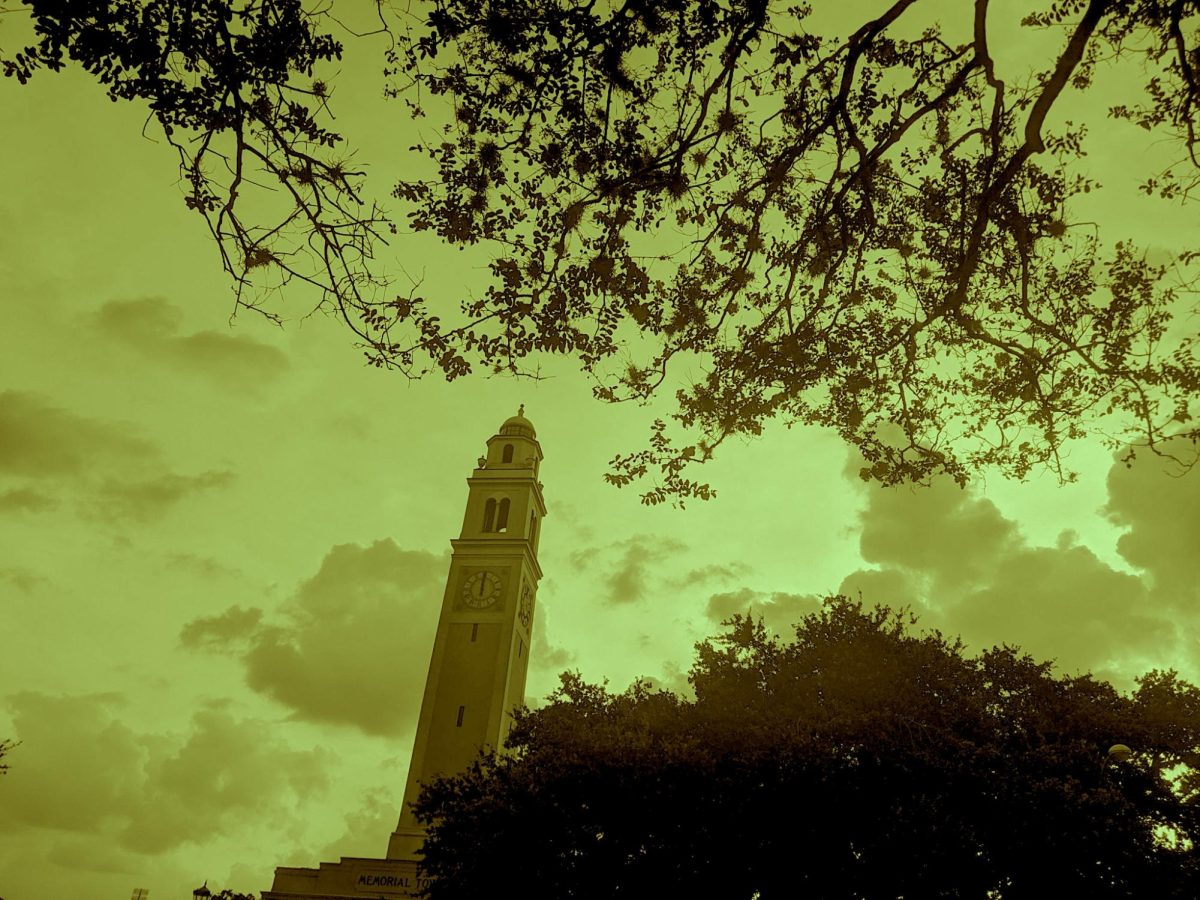Making the University campus more green and energy-efficient is a goal of many in our campus community. In response to this desire, Student Government and the SG Sustainability Commission launched the ‘Think Outside the Brick’ project last year.
The deadline for this year’s competition was Monday. According to Rachel Conley, director of the ‘Think Outside the Brick’ project, approximately 25 applications were submitted by this years’ deadline.
“A committee will review all of the proposals and we will select 6 to 8 finalists and schedule interviews for them to pitch their idea to us in 15 minutes or so,” Conley said. “We plan to have selected and interviewed finalists by winter break, and plan to announce the winners in January when students are back on campus.”
The competition allows students to submit one-page proposals to a committee that will choose the best idea. In the past, the winner of the project was awarded $1000 to have their idea put into action but, in addition, the committee will select 2 runners-up who will each be awarded $500. The committee consists of the Student Body President, Sustainability Commission Director, Think outside the Brick director, Director of Outreach for Campus Sustainability, Member of University Affairs, and one Student At Large. The projects are judged based on feasibility, scalability, and campus impact.
The goal of the program is to increase campus sustainability. According to Komal Mathur, a freshman in biological sciences and a member of the Honors Village Sustainability Committee, “sustainability is using resources to the fullest potential, resources that are renewable and not harmful to the environment. It is about conserving energy and using resources that are beneficial to the environment now, and also don’t compromise its future.”
The committee aims to reduce the University’s toll on the environment and allow students to play a large role in this endeavor. The first ‘Think Outside the Brick’ winner was the Wolfpack Environmental Student Association for their SOUL garden, which is an organic community garden located on Centennial Campus near the Lake Raleigh Dam. According to Conley, the produce is organic and is donated to food banks and University students who help maintain the garden.
Lauren Morris, a senior in biological sciences and one of the founders of the SOUL garden, and other members of WESA had to do a lot of research and planning before submitting their proposal for ‘Think Outside the Brick.’
“[The committee] had a lot of good questions to see if we would be able to see the idea all the way through,” Morris said. “The Sustainability Commission has been really helpful by giving us ideas and support to build the SOUL garden.”
Morris said they started planting the garden in May and tested out the food throughout the summer.
“We plan to have two 12 by 14 plots in the future, one sustained by the SOUL garden team, where all the food grown will be given to the Raleigh Inter-Faith Food Shuttle,” Morris said. “For the other plot, we hope to rent sections out to individuals, professors and groups for $10 a season so that they can take responsibility for their own produce.”
According to Morris, the SOUL garden is important because it helps students see the University as a symbol of sustainability and helps students think about the importance of where their food comes from and how it effects the environment.
Other past proposals judged by the committee dealt with window tinting in the library, which would lower the amount of energy needed to cool the library down, especially during the summer; zero waste events, which makes maximal use of recycling; shade tree implantation to lower the amount of energy needed to cool buildings and many others.
“Any green idea has the potential to be a winner if it is feasible and has a respectful anticipated impact,” according to Conley.
Last year, there were 25 applications submitted to the committee, according to Conley, the same number that was received this year. The committee highly values the input of students because it shows how much the student body cares about the University and making it more sustainable for our own future.
“Think Outside the Brick is a project designed to directly involve students with sustainable impacts on campus,” Conley said. “This is a way for the average student’s idea to become something tangible. This year, SG’s Sustainability Commission has transitioned their focus to uniting sustainable groups on campus, students and staff alike. Think Outside the Brick is just one of the ways to rally students around grassroots green innovation.”
Some other examples of projects that increase NC State’s sustainability include the Pack Pulse Energy Competition, which informs students about the energy they consume using real time energy monitoring displayed on flat screen monitors in Syme and Owen residence halls. The farmers market also gives students the opportunity to buy local/organic produce, personal products, and crafts, which is better for one’s health and the environment. In addition, the bike renting program allows students to rent bicycles as an alternative method for traveling around campus, thereby reducing carbon emissions and allowing the NCSU student body to have a lowered carbon footprint. Finally, the Greek Life Recycling Competition allows students to support their Greek organization by recycling cans.






